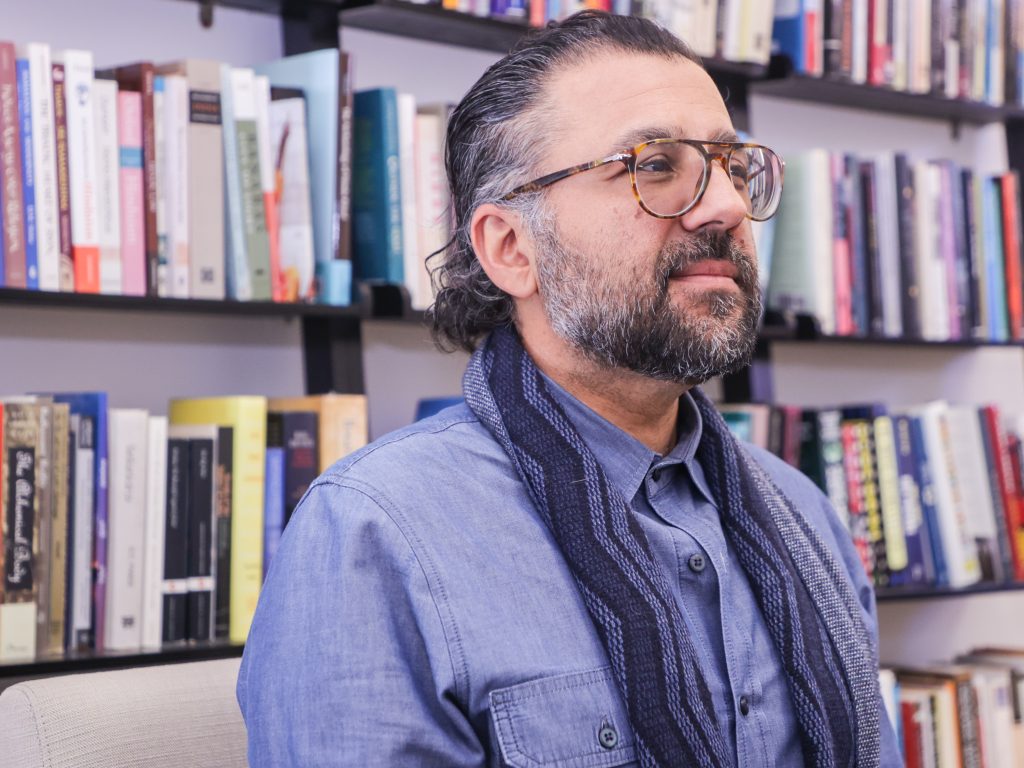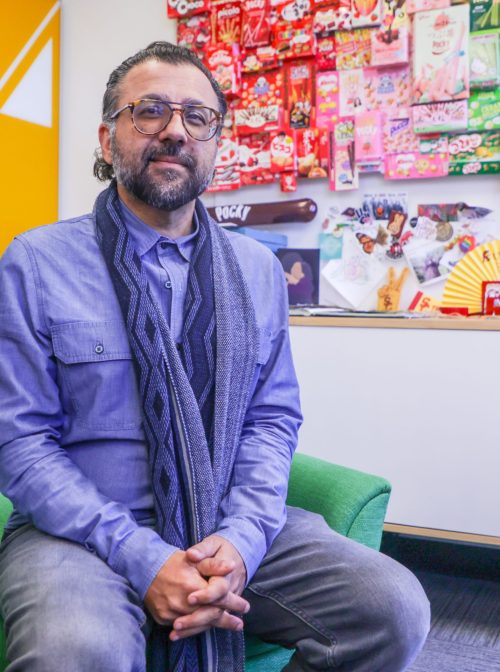In 2008, when Mumbai, India witnessed a series of terrorist attacks at the hands of a Pakistan-based religious militant group, the rift between Indians and Pakistanis in America was stirred up. Varun Soni had recently started in his role as the dean of religious life at University of Southern California (USC). As the first Hindu in such a role on any American campus, Soni knew it was time to lead by example and bring the communities together.
Soni organized an interfaith memorial service for the victims, co-sponsored by the Association of Indian Students and the Pakistani Student Association. He received significant criticism for letting a Pakistani student organization sponsor the memorial, but he stood his ground.
“I got yelled at; I was told I wasn’t a real Hindu. But our Pakistani students really appreciated it. They told me that they were also really hurt by this attack, that it didn’t represent their values or what they wanted for their nation,” said Soni.
He added, “Because there was so much pain and vulnerability at this particular moment, I saw these really amazing stories being told and relationships being forged. It was organic friendship that was forged out of trauma.”
The occasion would set the tone for Soni’s religious leadership going forward. He decided that in this position, his goal wasn’t to please everyone but to “change hearts and minds” by bringing people together in safe spaces.
Today at USC, Soni works at the intersection of spiritual and scholarly education, provides moral and ethical leadership on campus, and oversees 90 student religious groups and more than 40 staff members who act as “religious directors” on campus.
Evolving nature of religious and social identity
Soni was born in India but grew up in Southern California in the post-1965 Hart-Celler Act era, when racially biased national quotas for immigration were abolished. At the time, there was not a substantial population of Indians in the country, so Soni’s family connected with other South Asians who had similar experiences and struggles as new immigrants in the U.S.

“When my parents first came to the U.S., we hung out with everyone from South Asia — Hindu, Muslim, Sikh. It was a very interfaith environment because anyone who was Desi essentially was part of your community,” Soni noted.
Today, the South Asian population in the U.S. is much larger, and Soni has observed a corresponding shift toward more granular identities like Indian Americans and Pakistani Americans. But for younger South Asians who grew up in the U.S., these identities may matter less than their American identity.
“For millennials or post-millennials, they may have a more granular identity as Indian or Pakistani Americans, but I think they’re going to lean more into the American side of things,” said Soni.
Soni has to be mindful of these evolving identities as a religious and spiritual leader in higher education. While growing up, he was othered as a religious minority, but that may not be true for younger Hindu students today.
“I think younger students may already feel like they belong in the United States. They’re being raised in a country where Diwali is being celebrated at the White House by a vice president who was raised Hindu. Diwali is being celebrated in the UK by a Hindu prime minister. Suddenly, you don’t feel like you don’t belong because you can see your own experiences in the world and no path is cut off for you,” added Soni.
Soni considers himself “essentially a university chaplain” for a community at USC that is over 70,000 strong, a community that constitutes the largest private university in the U.S. and represents 140 countries and a myriad of religious beliefs and affiliations. Promoting spiritual well-being in such a diverse community isn’t an easy task, but Soni uses his personal faith to guide his professional work. As he describes it, Hinduism promotes non-duality or interconnectedness instead of seeing everything as good or bad, and that’s a lesson he tries to promote among his students.
“It’s not that your faith is the right faith for everyone, but that your faith is as good for you as my faith is good for me. That’s a very Hindu idea,” said Soni. “I think Hinduism offers the United States — which is really stuck in the right-or-wrong, black-or-white dichotomy mold of seeing the world — a multiplicity of perspectives and truths that I think get us to better outcomes at the end of the day.”
Reimagining religious leadership
According to Soni, 51% of his students are not affiliated with any religion and this proportion is slated to increase in the future across young Americans.
“We’re going to lose 75% to 80% of our Protestant churches in the next 20 years. We’re going to lose 200,000 churches. Two-thirds of divinity schools are about to shut down because there’s no enrollment. I think it’s not just that South Asians aren’t leading on religion. No one’s really leading on religion, quite frankly,” said Soni.
For Soni, religious leadership needs to be reimagined for higher education leaders like him to support students who are religiously unaffiliated, as well as those who may be feeling socially disconnected or alone.
“Anxiety has doubled in the last nine years. Self-harm has doubled in the last nine years. That’s why we have suicidal ideation and depression that is off the charts. That’s why loneliness is the biggest challenge for young people in America today,” said Soni.
He believes his job is less about inclusion or tolerance and more about belonging, especially among younger generations who want to be connected.
“I think really what we’re talking about is belonging, a sense of rootedness, a sense of community, a place in the world, a place in the universe. That’s traditionally what religion has provided practitioners.”
I have to find belonging within this new religion that I’m building for students who have no religion.
Soni delivers this sense of belonging by “being a provider” for his students, be it providing yoga and meditation, space for primal screams, or coloring book sessions. “I’m the chief belonging officer, in a way,” he says. “I am trying to create these conditions for students. I have to find belonging within this new religion that I’m building for students who have no religion.”
Soni himself identifies as more of a spiritual leader than a religious one, and wants people to have opportunities to engage spiritually, even if they are not religious. He credits religions like Hinduism and Buddhism for mainstream spiritual activities like yoga, meditation, and mindfulness.
“I think this movement towards spiritual-but-not-religious is a movement towards implicitly adopting spiritual ideas from Asia specifically. [It’s] wrapped up in meditation, yoga, corporate wellness modules, but where is it all coming from? Yoga comes from the Vedic traditions. Mindfulness is Buddhist meditation. Vipassana, straight up,” he said.
Soni wants people to understand the origins of such practices, but at the end of the day, he prioritizes giving his students what they need over educating them about religious or spiritual origins of their activities.
“Nothing my students are talking about seems disconnected from my root identity as a Hindu or Buddhist, even though none of them see it that way,” he added. “I don’t have the luxury of being academic about, ‘Oh, this is a South Asian tradition that’s being whitewashed through a colonial lens?’ I’m like, ‘Is this going to help you thrive?’ Then I’m going to do it. That’s it.”
Shakeeb Asrar is a multimedia journalist and documentary filmmaker. He was previously with Al Jazeera English in Doha, Qatar and USA Today in Washington, D.C, and has also received reporting grants from the Pulitzer Center and South Asian Journalists Association (SAJA). Shakeeb holds a bachelor’s degree in journalism from Northwestern University and master’s in documentary filmmaking from Columbia University. He is passionate about covering stories from the global South, with a focus on human rights, migration, and social justice. Follow Shakeeb @shakeebasrar on Instagram and Twitter.
This article is part of Interfaith America’s AAPI qualitative research and storytelling initiative, which explores Asian American and Pacific Islanders’ experiences of religious identity and diversity in the United States. Stories published as part of this initiative offer key findings from the research and spotlight AAPI changemakers across different religious, civic, and professional sectors.





